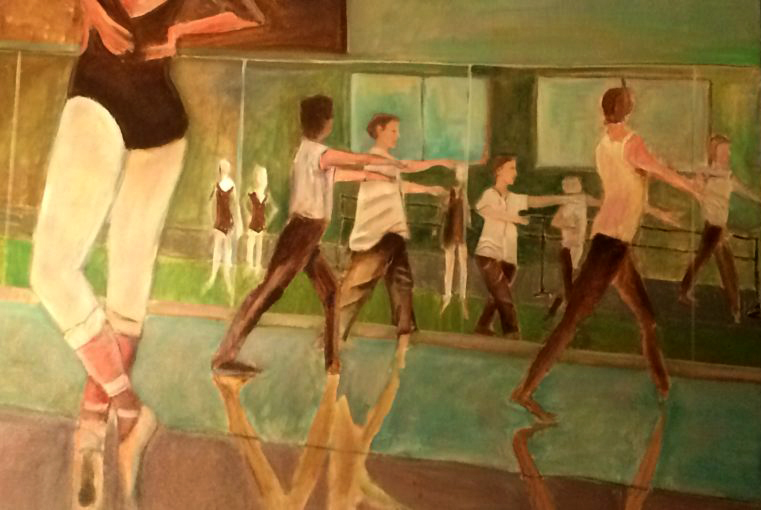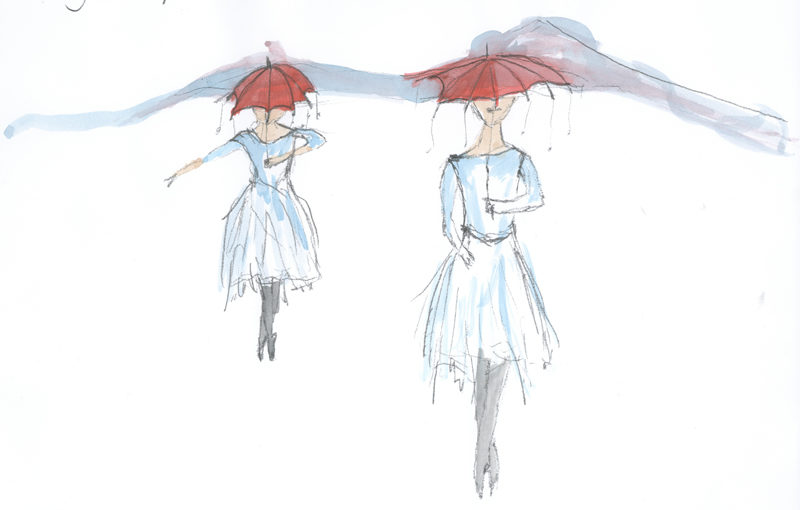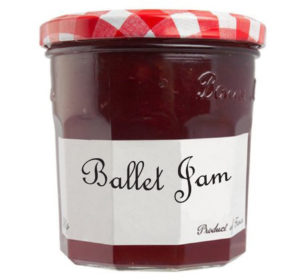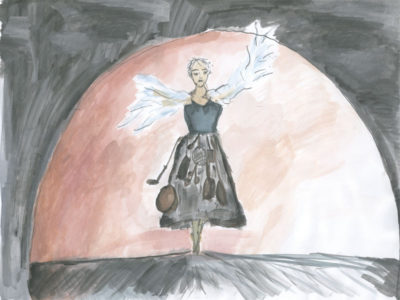Revolutionaries Rather Than Victims
BY KRISTEN DEMAREE
Kristin Demaree is a ballet teacher and choreographer based in Boulder, CO. She began Ballet Jam workshops with the aim of supporting women choreographers in the field of ballet. In this interview, she discusses how we might start turning female ballet dancers and choreographers into revolutionaries rather than victims.
~~
As a young dancer, what was your ultimate goal? Did it extend beyond a performing career?
As a young dancer, I was not very interested in choreography; I really just wanted to dance. The perception for me was that if you were directing or choreographing, you were no longer a dancer. I never experienced someone dancing and choreographing at the same time. I saw my mother directing and choreographing my whole life, and much of my dancing was done under her mentorship. She choreographed for a local musical theater company for 15 years, starting when I was seven years old, so I grew up watching her work. I never thought it was odd that she was in charge and creating work — it was normal for me to experience.
Do you believe your male peers had aspirations beyond performance, or were encouraged to?
Men have often been in charge, and the women, including my mother, were often one-under these positions. However, my mother was asked to be the artistic director of Boulder Ballet, and she declined the offer. They then offered it to Milenko Banovich, and he encouraged my mother to be the assistant artistic director. Becky Jancosko was the ballet mistress at the time, and the three of them were a wonderful team. I personally know a lot of female choreographers and directors, more than men for the most part. However, I have been very disappointed that men are promoted to be directors more often by boards and organizations. I have also witnessed sexual harassment as well as inappropriate relationships by men in power over women, which was overlooked for many years. This was a very terrifying and disheartening experience. It showed me that systems of power have a lot of control over what the public seems to think is quality art.
 Painting by Paul Demaree of Barbara Demaree teaching ballet class
Painting by Paul Demaree of Barbara Demaree teaching ballet class
Do you believe the reasons why men routinely hold positions in power in the dance world are coincidental or endemic?
Yes, I think it is endemic. Women are expected to be “good girls,” to do what they are told. In dance, this means when someone says “jump,” the female dancer asks “how high?” However, I have witnessed women directors being equally oppressive in this sense, and that dancers are treated as objects to be used, easily dismissed and replaced based on the choreographer’s demands. The male choreographers I have seen locally often have an aspect of sexually humiliating women in their choreography, in my opinion. Examples are looking up women’s skirts, manipulating their limbs in partnering, and employing extremely thin dancers over more robust and strong-looking ones. Having a frail limp body draped over the manipulating male is an overused theme in many contemporary works. Many of these dancers are very young as well and are easily convinced that they know very little, even though they are doing all the work.
What might help more female dancers become interested in directing and choreographing?
Women in dance need to advocate for themselves and their bodies. There needs to be more discussion about what kind of movements are causing physical harm and humiliation. Because female dancers want to dance, they will gratefully and willingly break themselves to keep a role. This opens up a massive opportunity for exploitation. If women can become more empowered to be choreographers, they can start making a change to this kind of treatment towards dancers.
Instead of waiting around for the role or opportunity, make it yourself. Start your own company, and don’t question your ability to make it happen.
I created Ballet Jam to be a workshop not just for choreography, but for the culture of ballet to change. I want dancers to explore their role as leaders, and to advocate for each other as movement artists on both sides of the creative process. There are many choreography workshops and showings, but rarely do they involve critical thinking about the nuts and bolts of the process, and how this is reflected in the final choreography.
From your perspective, do festivals and programs that specifically feature women’s choreography help the problem, or would it be best to integrate women into programs alongside men without making a distinction?
I’m sure having any kind of choreography festival is a good idea, and having it geared towards women can’t be harmful! Women are often not involved in telling their side of things in other arenas too, for example film, songwriting, etc. It is very brave for women to get out and tell their perspective, no matter what genre. I guess it just seems more ironic with ballet, because ballet features women more prominently than men. The reason I focused on the Romantic era specifically in my research MFA project was because that was the time period when women became central characters in ballet. It is interesting to note this was also part of a political movement away from aristocracy. So my simple conclusion is that women became a symbol of a new era – and I wanted to remind ballerinas of this history. Much of the ballerina’s tale is about the dark side of eating disorders, sexual harassment and body shaming. I wanted to highlight the strength that ballerinas had in the Romantic era when they took on the storytelling of a revolution. If ballerinas start to see themselves as revolutionaries rather than victims, that’s when things will start to change.
~~
Kristen Demaree grew up in Boulder, Colorado studying ballet at Ballet Arts Boulder, under the ownership of her mother Barbara Demaree, and performed with the Boulder Ballet in its early years in many productions. She holds an MFA in dance from the University of Colorado at Boulder. She created the capstone project “Strange Bird and the Cloud Spirits” (2014), based on Act II of Giselle, and reproduced the ballet with her production company “Delusions of Grandeur Productions.” Kristen is also a traditional Scandinavian folk fiddler in Swedish and Norwegian styles, and is involved in local music groups. She writes about ballet on her blog at kristendemaree.com.




One Response to “Revolutionaries Rather Than Victims”
Marvelous! Kristen this is so well put together. You speak with truth and vigor yet with gentle intelligence that I find really quite marvelous! Well done Kristen! I am very proud of your thinking and manner of expressing your thoughts on dance and the people who share your discipline in that art. Your Mom has provided the roots of this fine article that you have given. She should be extremely proud of you…I am…and I know our father is too! And how about that painating by Paul!!! That is reflective of a family who explores, enjoys, all the arts and shares generously of their talents…whatever those talents are.
Love you….terrific article!
Comments are closed.